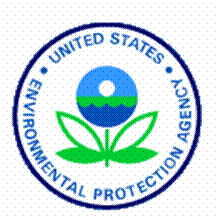The Environmental Protection Agency (EPA) has released its Tier 3 Vehicle Emission and Fuel Standard Program rules. The purpose of the program is to reduce impacts of motor vehicles on air quality and public health. In addition to lower the gasoline sulfur standard, the program is supposed to reduce both tailpipe and evaporative emissions from passenger cars, light-duty truck, medium-duty passenger vehicles and some heavy-duty vehicles. The proposed rule was released on May 31, 2013 and the final rule was signed on March 3, 2014.
 In a nutshell, what does this mean for the alternative fuel industry? It means that in some circumstances alternative fuels such as higher blends of ethanol could emerge as next generation automotive fuels. Tier 3 fuels are considered fuels that the automotive industry can “test” to meet the emission standards. The EPA’s rule finalizes an ethanol content of 10 percent (E10) for emissions test gasoline. However, the biofuels industry was lobbying for higher ethanol blends to be approved as test fuels such as E15 and E30. This did not come to pass.
In a nutshell, what does this mean for the alternative fuel industry? It means that in some circumstances alternative fuels such as higher blends of ethanol could emerge as next generation automotive fuels. Tier 3 fuels are considered fuels that the automotive industry can “test” to meet the emission standards. The EPA’s rule finalizes an ethanol content of 10 percent (E10) for emissions test gasoline. However, the biofuels industry was lobbying for higher ethanol blends to be approved as test fuels such as E15 and E30. This did not come to pass.
So in other words, an automotive company can test “E15” and find positive emission reduction results, but since it is not considered a legal “test fuel,” the fuel can’t be considered meeting (or exceeding) the EPA’s emission standards.
“It’s not the greatest thing since sliced bread; but at least there’s dough in the machine,” said Advanced Biofuels USA’s vehicle emissions expert, Robert Kozak. “We didn’t get everything that we wanted but two items are important. 1) The new requirement that vehicles be tested and certified using E10 (10% ethanol blend that is standard fuel across the country); and 2) The opportunity for manufacturers to request approval of another new certification fuel such as high octane/high ethanol E30 (30% ethanol blend).”
The next step, says Kozak, is to begin working with the EPA immediately to approve the next round of text fuels such as E30. Others in the industry agree that E15 and E30 should be legal test fuels but some believe the next step is to sue the EPA because limiting the higher ethanol blends as test fuels will limit the automakers research and deployment of more and better optimized vehicles, such as flex fuel vehicles, designed to capitalize on ethanol fuel blends.

